1] Life of Ambedkar
Dr. Bhimrao Ramji Ambedkar, widely known as B. R. Ambedkar, was a visionary social reformer, jurist, economist, and the chief architect of the Indian Constitution. He was born on April 14, 1891, in Mhow, in present-day Madhya Pradesh, into a Dalit Mahar family, which faced severe caste-based discrimination.
Despite social hardships, Ambedkar pursued education with exceptional determination. After graduating from Elphinstone College, University of Bombay, he earned degrees from Columbia University in the U.S. and the London School of Economics, becoming one of the most educated Indians of his time. His academic training in law, political science, and economics laid the foundation for his reformist ideas.
After Ambedkar started practicing law in Mumbai, nobody would approach him because of his caste. He realized that even when Dalits are educated, they will not be able to live the life of dignity. Hence, he believed that untouchability has to be abolished to address the exploitation of Dalits. He dedicated himself for the cause of the abolition of untouchability by raising awareness amongst Dalits. He brought magazine MUKANAYAK, newspaper BAHISHKRIT BHARAT. He established Bahishkrit Hitkarni Sabha, All India Depressed Classes Federation which was later renamed as Republican Party of India.
Ambedkar also adopted Gandhian technique of Satyagraha. He organized Mahad satyagraha, he asserted the rights of untouchables to take water from the same well, which is used by ‘caste Hindus’. Ambedkar was disappointed as he could not get the support of Gandhi for his satyagraha. Gandhi held that for the time being satyagraha should be used only against colonial authorities. Ultimately Ambedkar felt that it is better for untouchables to take the help of British state in improving their status.
Ambedkar never believed in commitment of Gandhi towards upliftment of untouchables. One of the grievance of Ambedkar against Gandhi has been that Gandhi never kept any fast for abolition of untouchability.
Ambedkar devoted his life to fighting caste oppression and social injustice. He believed that political democracy must be accompanied by social and economic equality. As the Chairman of the Drafting Committee of the Indian Constitution (1947–49), he ensured that the document guaranteed fundamental rights, equality before law, abolition of untouchability, and affirmative action for the marginalized.
He also served as India’s first Law Minister in Jawaharlal Nehru’s cabinet. However, he resigned in 1951 over differences on the Hindu Code Bill, which he felt did not go far enough in securing rights for women.
A strong critic of the caste system, Ambedkar eventually converted to Buddhism in 1956, along with hundreds of thousands of followers, as a rejection of caste-based Hinduism.
Dr. B. R. Ambedkar passed away on December 6, 1956, in Delhi. He is remembered as a champion of social justice, the father of the Indian Constitution, and a guiding light for the Dalit movement. His legacy continues to inspire struggles for equality and dignity in India and beyond.
2] Concept of Caste
Ambedkar’s main work revolves around the abolition of caste. His most important work on the issue of abolition of caste is ‘Annihilation of Caste’.
Ambedkar was not satisfied with the explanations related to caste system found in religious texts. Ambedkar attempted the scientific understanding of the origin of caste on the basis of anthropological researches. His important works on the issue include CASTE IN INDIA, WHO WERE SUDRAS, ORIGIN OF UNTOUCHABILITY.
Ambedkar also rejected the theory of Aryan invasion. As per the theory of Aryan invasion, upper caste have been the Aryans whereas so called untouchables were the original inhabitants, often mentioned as dasas or dasyus. There is no such historical evidence, it means all caste in India had common origin.
Ambedkar rejected the view of Manusmriti according to which different varnas originated from the different parts of Viratapurusa as mentioned in Rigveda also. In Manusmriti, untouchables are mentioned as chandals. Chandals are those who are the offspring of Shudra father and Brahmin mother, which shows the pollution of Brahmins by Shudras. The entire concept of untouchability is based on purity and pollution.
Ambedkar had also explained the origin of Sudras. As per Ambedkar’s theory, there were only three varnas – Brahmins, Kshatriyas and Vaisyas. Sudras were originally Kshatriyas; however they were those Kshatriyas, which did not accept the hegemony of Brahmins, hence Brahmins stopped Upanayana Sanskar for this group. Upanayana Sanskar is linked to purification. Hence it was believed that they remain polluted.
3] Explanation of Untouchability
Ambedkar has used the term Dalits. The term Dalit come from Marathi word dal. Dal denotes broken. Ambedkar calls Dalit as broken men. According to Ambedkar, there used to be tribal way of life, there used to be tribal wars. Gradually some tribes started settled life. When settled life started, agriculture started. This started the practice of cattle rearing and not killing cattle for food as it was not needed. Initially the main wealth used to be cattle, but now it became land. There were certain tribes which remained nomadic. These tribes continue to remain dependent on cattle even for food. Many of such tribes were defeated and got scattered. Thus they became broken and weak. Settled tribes did not include these tribes within their society. Since they lacked land, they were made dependent on the settled tribes. There was a contract between those who were living in the village and those who were settled on the outskirts of the village. Those on the outskirt will watch and ward the security of the people in the village.
According to Hindu literature, Dalits were called antyaja because they were last to take birth from body of Bramha. Ambedkar does not accept the explanation and suggest that they were called antyaja because they were living outside village.
According to Ambedkar, these tribes have accepted Buddhism. Brahmins targeted these tribes out of anger because these tribes insisted on remaining Buddhist. Hence Ambedkar believes that the practice of untouchability is also because of anger and the rivalry between Brahmins and Buddhists. Ambedkar even mentions that originally beef eating was not prohibited but to regain the lost stage, Brahmins stopped eating non-vegetarian food. This made them to claim Brahmins as pure. Ambedkar even mentions that exogamy was not prohibited among varnas. This practice was started later by Brahmins to show their exclusiveness. According to him, there is no pure blood on the subcontinent. Intermixing of blood had already taken place much before the origin of caste system. Ambedkar does not consider untouchables as a part of Hindu society, since they have been socially segregated, they should also be politically segregated. According to him, any amount of economic equality will not help. No upliftment is possible without rejection of Hindu social order. Hinduism as a religion and caste system as a social order has ruined Dalits. He even believed that the social order will ultimately ruin Hindus themselves. It will ruin India itself.
4] Ambedkar on Hinduism/ Brahminism
It is because of caste system where person’s status is based on worth, Hinduism cannot be ‘missionary religion’. Hinduism cannot go for conversions like Islam or Christianity. He held that Hindus cannot form a nation. They are segmented communities and warring tribes. He held that Hindus are race of losers. They will continue to lose to other religions. Thus caste system is not just responsible for the exploitation of Dalits but is responsible for the weakness of India as a nation. According to him, Hinduism is nothing but Brahminism. It is a hegemony of Brahmins. Core idea of Hinduism is endogamy. Hence without destroying endogamy, caste system cannot end. Hence biggest anger of Brahmins will be against inter-caste marriages. According to him, Hinduism is not a religion but madness. He held that ‘I had no choice but being born as Hindu. However it is in my capacity not to die as Hindu. The religion which forces poor to remain poor, uneducated, which allows man to touch the excreta of cow but not touch the fellow human being is nothing but madness’. In other societies, inequality is social, in Hinduism there is a justification of inequality even in philosophy.
According to him, Hindus are not bad people, their main problem is they are highly religious. Hence even Hindu social reformers would not be successful. There is nothing in Hinduism except caste system. One cannot reject caste being Hindu. Annihilation of caste requires rejection of Hinduism. Hence, he held that there is a need to put dynamite on Vedas and Manusmriti.
Hence Ambedkar appealed to reject Hinduism. Ambedkar converted to Buddhism on 14th Nov 1956. Ambedkar held that ‘I am disowning the religion of my birth. I am reborn. I reject religion which treats me inferior.’
On the issue of conversion, there was disagreement between Gandhi and Ambedkar.
5] Gandhi Ambedkar Differences
Gandhi believed that if person is born in a particular religion, there is a divine will. One can accept good things from other religions but one should not leave one’s religion. On the other hand, Ambedkar wanted to convert. He even explored conversion in Islam and Christianity but ultimately found spiritual satisfaction in Buddhism.
Ambedkar and Gandhi also had debate over Varna system. Gandhi believed Varna system as division of labour. It is a feature of even advanced societies. However Gandhi rejected caste system. Gandhi was also against untouchability.
Ambedkar held that Gandhi’s description is too idealistic, textual. Varna is a text, caste in context. In reality varna exists as caste. Caste is not the division of labour; it is a division of labourers. It is also not a sensible economic system. Profession is not based on merit but based on birth. Gandhi’s impracticality is evident as Gandhi himself was not observing his varna dharma. Hence abolition of caste and varna is same. Ambedkar criticized Harijana Sevak Sanghs formed by Gandhi. He compared Harijana Sevak Sanghs with Putana. The mythological character sent to kill Krishna by nursing poison in the form of milk.
Ambedkar had objection with respect to the use of the word Harijana. According to Ambedkar, it is a misleading term because it does not tell the real status of untouchables in Indian society. It may push them into ‘false consciousness’. Hence Ambedkar preferred to use the term Dalits and depressed classes.
6] Dalit Revolution
Ambedkar has analysed the relevance of Marxist mode of revolution in Indian situations. He found that this method is not appropriate. Why? The basic structure of Indian society is not economic rather ideological. Brahminism forms the basic structure and hence just economic upliftment will not give them a life of dignity. Hence, he suggested annihilation of caste by putting dynamite on Vedas and Manusmriti.
Thus Dalits will have to go for building ‘counter-hegemony’.
Ambedkar was influenced by liberal scholars like John Dewey. A lawyer by profession, Ambedkar had faith in constitutional methods. According to him, society in India is more exploitative and hence the state can work for Dalits. He favoured state led affirmative action. In this context also his view was different from Gandhi. Gandhi favoured Panchayati Raj, Gandhi was against state led model. Ambedkar found Gandhi’s approach too idealistic. He held that Indian villages are ‘den of ignorance’ where caste system is most entrenched. Modernists like Pandit Nehru, Ambedkar preferred state led approach.
Ambedkar knew that the change in the status of Dalits requires the emergence of consciousness among Dalits themselves. Hence, he brought magazines and newspapers, established societies for generating awareness. Ambedkar’s mantra for Dalits was ‘agitate, educate and organize’.
7] Social Justice
The issue of social justice has been not only the concern of political philosophers, but political leaders also. Ambedkar’s idea of social justice has to be seen in context of the peculiar forms of injustices found in Indian society. The basic composition of India society has been based on caste. According to Ambedkar caste system is a graded system of hierarchy where the life of people at the lowest levels is like a hell.
Ambedkar belonged to the community of untouchables/antyaja. The most depressed section. Social justice for Ambedkar meant a life of dignity to this section of the society. According to Ambedkar, social justice requires annihilation of caste. Since caste is the basic structure of Hindu society, it also means rejection of Hinduism, for Ambedkar Hinduism is not a religion but ‘madness’.
Ambedkar knew that caste Hindus will not be able to come out of caste system hence the practical approach to justice in Indian context shall be compensatory justice. Ambedkar believed political power is necessary for the empowerment of untouchables. Hence Ambedkar advocated separate electorate, though ultimately succumbed to the pressure by Gandhi and finally agreed for reservations.
Ambedkar’s idea of social justice embraced the concerns of India’s subaltern class, the Bahujan samaj. It included the concerns of untouchables, Shudras, tribal, minorities, women, labourers, peasants. It was Ambedkar’s idea of social justice which inspired him as a law minister to bring Hindu Code Bill. Hindu Code Bill proposed by Ambedkar challenged the patriarchy present within Hindu Personal Laws based on ‘Manuvaad’.
The special rights which minorities have in India can be attributed to Ambedkar’s idea of social justice.
8] Ambedkar’s Critique of Marxism
Ambedkar was influenced by Marx’s idea of social justice which aimed at the ending the exploitation of poor. However Ambedkar felt that Marxist methods are not so relevant in Indian situations.
Ambedkar disagreed with Marx on two basic issues. Marx’s conception of religion. Ambedkar did not agree that all religions are ‘opium of masses’. Buddhism is not opium of masses. Perhaps Marx didn’t know about Buddhism. Buddhism as a religion has a lot for the nourishment of human soul. Untouchables can embrace Buddhism, Buddhism as a religion will provide untouchables a source of inspiration, spiritual satisfaction and the creation of world brotherhood. Buddhism is based on Karuna (Compassion), samata (Equality) and prajna (Rejection of superstitions).
Ambedkar also disagreed with Marx with respect to state. He didn’t accept Marx’s view that state is an instrument of exploitation. Society is more exploitative than state and hence Ambedkar preferred affirmative action through the state.
If Gandhi was father of nation, Ambedkar was father of constitution. The two leaders had similar aims though their paths were different. Arundhati Roy addresses Gandhi as saint and Ambedkar as Doctor.
9] Ambedkar as Anti-Nationalist (?)
Arun Shauri in his book, WORSHIPPING FALSE GODS has called Ambedkar ‘anti-national’. He has given following reasons.
- Ambedkar opposed Purna Swaraj resolution of 1929.
- On 8th Aug 1930, Ambedkar held that depressed classes should be grateful towards British for improving their status.
- Ambedkar directed Dalits to stay away from a) Gandhi’s Harijana Sevak Sanghs. b) To stay away from Indian National Congress.
- Ambedkar called Poona Pact as Himalayan blunder; he wanted separate electorates for Dalits.
- Ambedkar criticized ‘Quit India Movement’ as ‘Mad-venture of Gandhi’.
- Ambedkar supported Jinnah’s demand for Pakistan.
- Ambedkar wanted Britisher’s to stay.
- Ambedkar joined the defence advisory committee formed by British as well as Viceroy’s executive council which was set up to gain legitimacy for British efforts.
Thus on above basis, certain sections of Indian political class and intellectuals call Ambedkar anti-nationalist.
Like Sir Sayyad Ahmed Khan, Ambedkar also emerged as the leader of the community rather than leader of the nation. Ambedkar himself held that between interests of the Dalits and interest of the nation, I will give preference to the interest of Dalits.
10] Ambedkar as a Nationalist
However according to Arundhati Roy and Christophe Jaffrelot, it will be wrong to call Ambedkar anti-national.
Ambedkar represented the largest section of Indian society. (Bahujan samaj). Person representing largest section of the nation cannot be regarded as anti-national. On the status of India as a nation, Ambedkar’s approach was as practical as that of Jyotiba Phule. It was difficult for Ambedkar to accept a society divided into castes as a nation. The concept of nation, according to Ambedkar is based on the trinity of liberty, fraternity and equality. There can be no nation without this trinity.
However it does not mean that there was no desire in Ambedkar that India should not emerge as a nation. In his speech to the constituent assembly in Dec 1946, he held that ‘I know, we are divided politically, economically and socially. We are group a of warring camps, I myself is a leader of one such camp.’ However I am convinced that day will come, when we will forget these differences and emerge as a nation. Ambedkar believed that sooner we accept that we are not a nation, better it is, at least we will start thinking how to become a nation by understanding the reasons that we are not a nation.
11] Grammar of Anarchy
On 25 November 1949, a day before adoption of Indian constitution by constituent assembly, Dr. Ambedkar gave a famous speech, often called Grammar of Anarchy. Here are some of the important excerpts from the speech, in his own words.
A] Evaluation of Constitution
“… I feel, however good a constitution may be, it is sure to turn out bad because those who are called to work it, happen to be a bad lot. However bad a constitution may be, it may turn out to be good if those who are called to work it, happen to be a good lot. The working of a Constitution does not depend wholly upon the nature of the Constitution. The Constitution can provide only the organs of State such as the Legislature, the Executive and the Judiciary. The factors on which the working of those organs of the State depend are the people and the political parties they will set up as their instruments to carry out their wishes and their politics. Who can say how the people of India and their parties will behave? Will they uphold constitutional methods of achieving their purposes or will they prefer revolutionary methods of achieving them? If they adopt the revolutionary methods, however good the Constitution may be, it requires no prophet to say that it will fail. It is, therefore, futile to pass any judgement upon the Constitution without reference to the part which the people and their parties are likely to play.
B] Criticism of Indian Constitution
The condemnation of the Constitution largely comes from two quarters, the Communist Party and the Socialist Party. Why do they condemn the Constitution? Is it because it is really a bad Constitution? I venture to say ‘no’. The Communist Party want a Constitution based upon the principle of the Dictatorship of the Proletariat. They condemn the Constitution because it is based upon parliamentary democracy. The Socialists want two things. The first thing they want is that if they come in power, the Constitution must give them the freedom to nationalize or socialize all private property without payment of compensation. The second thing that the Socialists want is that the Fundamental Rights mentioned in the Constitution must be absolute and without any limitations so that if their Party fails to come into power, they would have the unfettered freedom not merely to criticize, but also to overthrow the State.
These are the main grounds on which the Constitution is being condemned. I do not say that the principle of parliamentary democracy is the only ideal form of political democracy. I do not say that the principle of no acquisition of private property without compensation is so sacrosanct that there can be no departure from it. I do not say that Fundamental Rights can never be absolute and the limitations set upon them can never be lifted. What I do say is that the principles embodied in the Constitution are the views of the present generation… Jefferson, the great American statesman who played so great a part in the making of the American constitution, has expressed some very weighty views which makers of Constitution, can never afford to ignore. In one place he has said:
“We may consider each generation as a distinct nation, with a right, by the will of the majority, to bind themselves, but none to bind the succeeding generation, more than the inhabitants of another country.”
In another place, he has said:
“The idea that institutions established for the use of the nation cannot be touched or modified, even to make them answer their end, because of rights gratuitously supposed in those employed to manage them in the trust for the public, may perhaps be a salutary provision against the abuses of a monarch, but is most absurd against the nation itself. Yet our lawyers and priests generally inculcate this doctrine, and suppose that preceding generations held the earth more freely than we do; had a right to impose laws on us, unalterable by ourselves, and that we, in the like manner, can make laws and impose burdens on future generations, which they will have no right to alter; in fine, that the earth belongs to the dead and not the living;”
I admit that what Jefferson has said is not merely true, but is absolutely true. There can be no question about it…
One has only to examine the provision relating to the amendment of the Constitution…I challenge any of the critics of the Constitution to prove that any Constituent Assembly anywhere in the world has, in the circumstances in which this country finds itself, provided such a facile procedure for the amendment of the Constitution. If those who are dissatisfied with the Constitution have only to obtain a 2/3 majority and if they cannot obtain even a two-thirds majority in the parliament elected on adult franchise in their favour, their dissatisfaction with the Constitution cannot be deemed to be shared by the general public.
C] Future of India
My mind is so full of the future of our country that I feel I ought to take this occasion to give expression to some of my reflections thereon…
In addition to our old enemies in the form of castes and creeds we are going to have many political parties with diverse and opposing political creeds. Will Indians place the country above their creed or will they place creed above country? I do not know. But this much is certain that if the parties place creed above country, our independence will be put in jeopardy a second time and probably be lost forever. This eventuality we must all resolutely guard against. We must be determined to defend our independence with the last drop of our blood.
D] Future of Indian Democracy
It is not that India did not know what is democracy. There was a time when India was studded with republics, and even where there were monarchies, they were either elected or limited. They were never absolute. It is not that India did not know Parliaments or parliamentary procedure. A study of the Buddhist Bhikshu Sanghas discloses that not only there were Parliaments—for the Sanghas were nothing but Parliaments—but the Sanghas knew and observed all the rules of parliamentary procedure known to modern times…Although these rules of parliamentary procedure were applied by the Buddha to the meetings of the Sanghas, he must have borrowed them from the rules of the political assemblies functioning in the country in his time.
This democratic system India lost. Will she lose it a second time? I do not know. But it is quite possible in a country like India—where democracy from its long disuse must be regarded as something quite new—there is danger of democracy giving place to dictatorship. It is quite possible for this new born democracy to retain its form but give place to dictatorship in fact. If there is a landslide, the danger of the second possibility becoming actuality is much greater.
If we wish to maintain democracy not merely in form, but also in fact, what must we do? The first thing in my judgement we must do is to hold fast to constitutional methods of achieving our social and economic objectives. It means we must abandon the bloody methods of revolution. It means that we must abandon the method of civil disobedience, non-cooperation and satyagraha. When there was no way left for constitutional methods for achieving economic and social objectives, there was a great deal of justification for unconstitutional methods. But where constitutional methods are open, there can be no justification for these unconstitutional methods. These methods are nothing but the Grammar of Anarchy and the sooner they are abandoned, the better for us.
E] Hero Worship
The second thing we must do is to observe the caution which John Stuart Mill has given to all who are interested in the maintenance of democracy, namely, not “to lay their liberties at the feet of even a great man, or to trust him with power which enable him to subvert their institutions.”
There is nothing wrong in being grateful to great men who have rendered life-long services to the country. But there are limits to gratefulness. As has been well said by the Irish Patriot Daniel O’Connel, no man can be grateful at the cost of his honor, no woman can be grateful at the cost of her chastity and no nation can be grateful at the cost of its liberty.
This caution is far more necessary in the case of India than in the case of any other country. For in India, Bhakti or what may be called the path of devotion or hero-worship, plays a part in its politics unequalled in magnitude by the part it plays in the politics of any other country in the world. Bhakti in religion may be a road to the salvation of the soul. But in politics, Bhakti or hero-worship is a sure road to degradation and to eventual dictatorship.
F] Social Democracy
The third thing we must do is not to be content with mere political democracy. We must make our political democracy a social democracy as well. Political democracy cannot last unless there lies at the base of its social democracy. What does social democracy mean? It means a way of life which recognizes liberty, equality and fraternity as the principles of life. These principles of liberty, equality and fraternity are not to be treated as separate items in a trinity. They form a union of trinity in the sense that to divorce one from the other is to defeat the very purpose of democracy. Liberty cannot be divorced from equality, equality cannot be divorced from liberty. Nor can liberty and equality be divorced from fraternity. Without equality, liberty would produce the supremacy of the few over the many. Equality without liberty would kill individual initiative. Without fraternity, liberty would produce the supremacy of the few over the many. Equality without liberty would kill individual initiative. Without fraternity, liberty and equality could not become a natural course of things. It would require a constable to enforce them.
We must begin by acknowledging the fact that there is complete absence of two things in Indian society. One of these is equality. On the social plane, we have in India a society based on the principle of graded inequality which we have a society in which there are some who have immense wealth as against many who live in abject poverty. On the 26th of January 1950, we are going to enter into a life of contradictions. In politics we will have equality and in social and economic life we will have inequality. In politics we will be recognizing the principle of one man one vote and one vote one value. In our social and economic life, we shall, by reason of our social and economic structure, continue to deny the principle of one man one value. How long shall we continue to live this life of contradictions? How long shall we continue to deny equality in our social and economic life? If we continue to deny it for long, we will do so only by putting our political democracy in peril. We must remove this contradiction at the earliest possible moment or else those who suffer from inequality will blow up the structure of political democracy which this Assembly has to laboriously built up.
The second thing we are wanting in is recognition of the principle of fraternity. What does fraternity mean? Fraternity means a sense of common brotherhood of all Indians-if Indians being one people. It is the principle which gives unity and solidarity to social life. It is a difficult thing to achieve…
G] Nation Building
I remember the days when politically-minded Indians, resented the expression “the people of India”. They preferred the expression “the Indian nation.” I am of opinion that in believing that we are a nation, we are cherishing a great delusion. How can people divided into several thousands of castes be a nation? The sooner we realize that we are not as yet a nation in the social and psychological sense of the world, the better for us. For then only we shall realize the necessity of becoming a nation and seriously think of ways and means of realizing the goal. The realization of this goal is going to be very difficult…The castes are anti-national. In the first place because they bring about separation in social life. They are anti-national also because they generate jealousy and antipathy between caste and caste. But we must overcome all these difficulties if we wish to become a nation in reality. For fraternity can be a fact only when there is a nation. Without fraternity, equality and liberty will be no deeper than coats of paint.
H] Conclusion
These are my reflections about the tasks that lie ahead of us. They may not be very pleasant to some. But there can be no gainsaying that political power in this country has too long been the monopoly of a few and the many are only beasts of burden, but also beasts of prey. This monopoly has not merely deprived them of their chance of betterment, it has sapped them of what may be called the significance of life. These down-trodden classes are tired of being governed. They are impatient to govern themselves. This urge for self-realization in the down-trodden classes must not be allowed to devolve into a class struggle or class war. It would lead to a division of the House. That would indeed be a day of disaster. For, as has been well said by Abraham Lincoln, a House divided against itself cannot stand very long. Therefore, the sooner room is made for the realization of their aspiration, the better for the few, the better for the country, the better for the maintenance for its independence and the better for the continuance of its democratic structure. This can only be done by the establishment of equality and fraternity in all spheres of life. That is why I have laid so much stresses on them.
I do not wish to weary the House any further. Independence is no doubt a matter of joy. But let us not forget that this independence has thrown on us great responsibilities. By independence, we have lost the excuse of blaming the British for anything going wrong. If hereafter things go wrong, we will have nobody to blame except ourselves.
There is great danger of things going wrong. Times are fast changing. People including our own are being moved by new ideologies. They are getting tired of Government by the people. They are prepared to have Governments for the people and are indifferent whether it is Government of the people and by the people. If we wish to preserve the Constitution in which we have sought to enshrine the principle of Government of the people, for the people and by the people, let us resolve not to be tardy in the recognition of the evils that lie across our path and which induce people to prefer Government for the people to Government by the people, nor to be weak in our initiative to remove them. That is the only way to serve the country. I know of no better.
12] Test Your Knowledge
1] What is the basis of a nation, according to Ambedkar?
a) Trinity of liberty, equality and fraternity
b) Common religion
c) common ethnicity
d) common language
Show Answer
2] Which of the following journals was not founded by Ambedkar?
a) Bahishkrit Hitkarini Sabha
b) All India Depressed Class Federation
c) Harijan
d) Bahishkrit Bharat
Ans: c) Harijan
Show Answer
3] Who were the Shudras as per Ambedkar’s theory?
a) Those who emerged from the feets of Bramha
b) The original inhabitants of India when Aryan invasion happened
c) Kshatriyas who did not accept the hegemony of Brahmins
d) Kshatriyas who massacred Vaishyas
Ans: c) Kshatriyas who did not accept the hegemony of Brahmins
Show Answer
Ans: a) Trinity of liberty, equality and fraternity
4] Why does Ambedkar call Dalits as ‘broken men’?
a) Because Dalits were those settled tribes who were mentally handicaped
b) Because Dalits were those nomadic tribes who were defeated by the settled tribes
c) Because Dalits were those settled tribes who lost their lands
d) Because Dalits were those people who were physically hadicaped
Show Answer
Ans: b) Because Dalits were those nomadic tribes who were defeated by the settled tribes
5] How did untouchability start according to Ambedkar?
a) As the result of rivalry between Brahmins and Buddhists
b) As a result of rivalry between Hindus and Muslims
c) As a result of rivalry between Kshatriyas and Vaishyas
d) Because of the conflict arising on the question of beef-eating
Show Answer
Ans: a) As the result of rivalry between Brahmins and Buddhists
6] Which of the following statements is correct regarding Ambedkar’s view of Hinduism?
a) He believed that Hinduism is nothing but Bramhinism
b) He called Hinduism madness
c) According to him, the core idea of Hinduism is endogamy
d) All of the above
Show Answer
Ans: d) All of the above
7] How is inequality in Hinduism different from other societies, according to Ambedkar?
a) In Hinduism, inequality is social
b) In Hinduism, inequality is justified in philisophy
c) In Hinduism, inequality arises due to the economic status of people
d) In Hinduism, inequality is the outcome of foreign invasions
Show Answer
Ans: b) In Hinduism, inequality is justified in philosophy
8] Which of the following is not true regarding Gandhi’s view of caste?
a) Gandhi held that Varna system is a division of labour
b) Gandhi believed that one should not leave one’s religion
c) Gandhi rejected caste system
d) Gandhi favoured state affirmative action for the liberation of dalits
Show Answer
Ans: d) Gandhi favoured state affirmative action for the liberation of dalits
9] What was Ambedkar’s mantra for Dalits?
a) Agitate, Educate and Organize
b) Liberty, Equality and Fraternity
c) Protest, Revolt and Revolutionize
d) Prayer, Petition and Appeal
Show Answer
Ans: a) Agitate, Educate and Organize
10] Ambedkar did not support which of the following for the liberation of Dalits?
a) Rejection of Vedas and Manusmriti
b) Marxist mode of revolution
c) Building ‘counter-hegemony’
d) State-led affirmative actions
Show Answer
Ans: b) Marxist mode of revolution
11] Which of the following statements is correct regarding Ambedkar’s critique of Marxism?
a) Ambedkar considered Marxist mode of revolution suitable in the Indian context
b) Ambedkar agreed with Marx’s view that religion is the opium of the masses
c) Ambedkar rejected Marx’s view that state is an instrument of oppression
d) Ambedkar disagreed with Marx’s view that society is more oppressive than state
Show Answer
Ans: c) Ambedkar rejected Marx’s view that state is an instrument of oppression

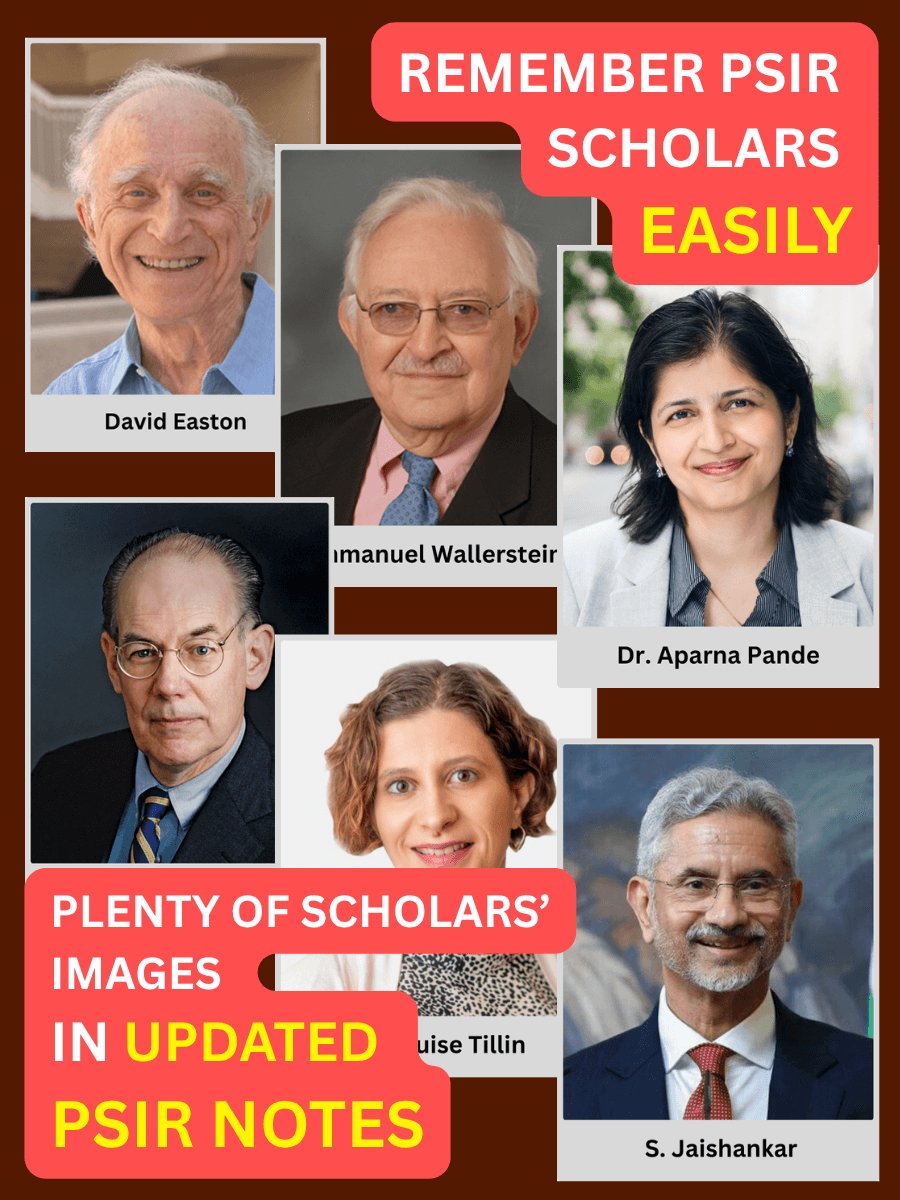



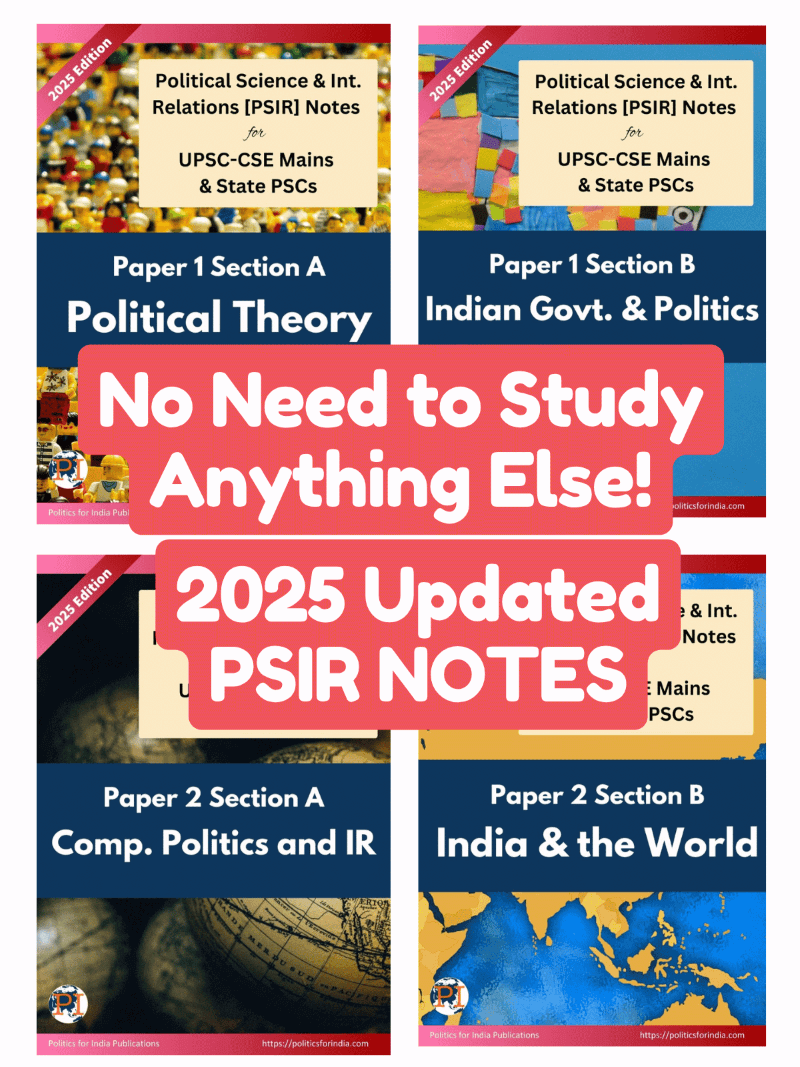



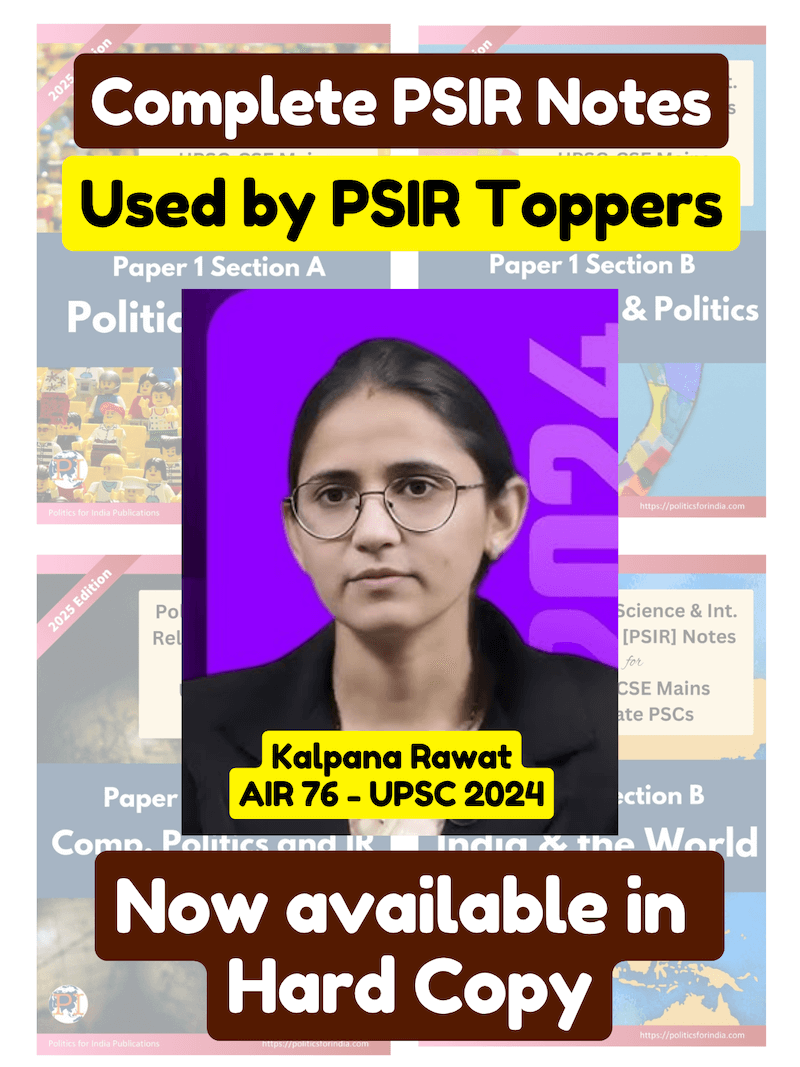



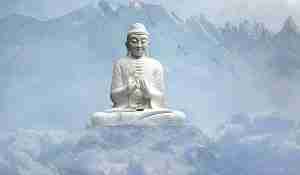

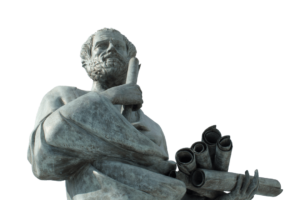
Comment on ambedkar’s idea on constitutionalism. Pyq asked in 2020
Can anyone provide an answer with the help of these notes?
The ggrammar of anarchy can be used to answer that
Small correction:
Topic “AMBEDKAR ON HINDUISM/ BRAHMANISM”
3rd line
“Worth” should to replace with “Birth”.
Oh yeah.. It makes all the difference. Thank you.